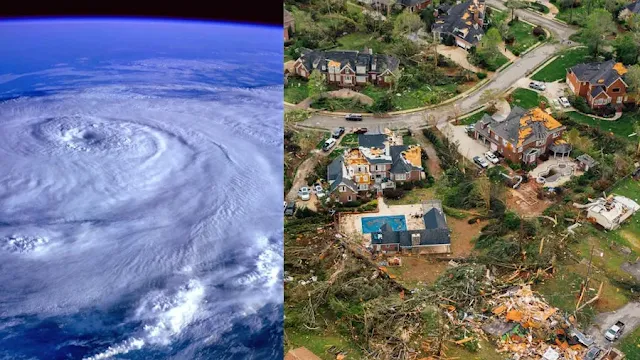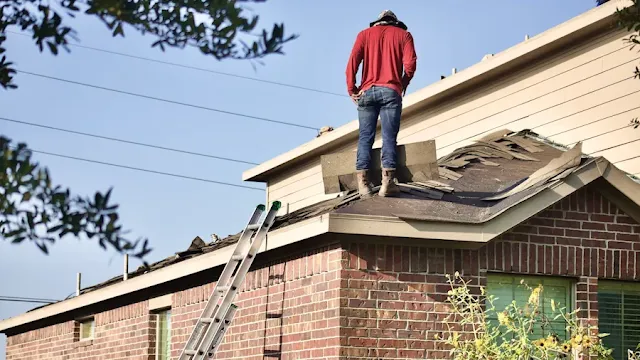Maintaining a home can be a daunting task, especially when faced with unexpected and costly repairs like burst pipes. Although homeowners insurance offers a safety net against many perils, it's crucial to understand the specifics of your policy when it comes to water damage.
Coverage for water damage under a standard homeowners insurance policy usually hinges on the nature and origin of the damage. If the damage is sudden, accidental, and originates from within your home, it's typically covered. However, damage from external flooding or due to neglected maintenance generally isn't covered.
Water damage is one of the most common reasons for home insurance claims, right behind wind and hail damage. The coverage you receive for water damage typically hinges on three crucial factors:
Policy Type:
Understanding the specifics of your policy is vital. For example, some homeowners may have a sump pump to remove water from under their house. If this pump fails, leading to a flooded basement, specific insurers like Progressive Home offer an optional “water back-up and sump overflow” coverage. This add-on helps protect against sump pump failures or sewer blockages.
Source of Damage:
The origin of the water damage greatly influences coverage. Internal sources like leaking plumbing, burst pipes, or overflowing appliances usually qualify for coverage under your homeowners policy. Roof leaks typically fall under this protection as well. However, damage from external sources, such as flooding, generally isn’t covered.
Sudden and Accidental vs. Gradual:
Gradual damage, which includes scenarios like long-term leaks that cause wear and tear, is usually not covered by homeowners insurance. Conversely, if a pipe bursts suddenly due to freezing temperatures and floods your home, this is often covered as it's considered a sudden and accidental incident. Nonetheless, your policy might require certain preventative measures to be in place for this coverage to apply.
For specific coverage details, including how to handle roof leaks and the necessary steps to winterize your home to prevent freezing pipes, it’s advisable to review your insurance policy and consult with your provider directly.
When does homeowners insurance cover water damage?
Homeowners insurance typically covers various types of common water damage, including:
- Sudden plumbing malfunctions
- Overflows from appliances
- Water damage from using fire extinguishers or hoses to put out fires
Does Home Insurance Cover Burst Pipes?
Typically, a standard homeowners insurance policy does cover water damage resulting from burst pipes, provided the damage is sudden and accidental. Coverage generally includes:
-
Dwelling Coverage: This is the core of your homeowners policy, covering damage to the physical structure of your home. For instance, if a burst pipe damages your walls or flooring, this coverage helps pay for necessary repairs.
-
Personal Property Coverage: This part of your policy covers the contents of your home, such as furniture and electronics. If these items are damaged due to a burst pipe, you're covered either for their actual cash value or their replacement cost, depending on your policy specifics.
-
Loss of Use Coverage: Also known as additional living expenses, this coverage assists with the costs of living elsewhere if your home becomes uninhabitable due to a covered peril, such as a burst pipe.
To fully understand what your policy entails, review the declaration page or speak with your insurance provider to clarify coverage before any issues arise.
When Home Insurance Might Not Cover Burst Pipes
Not all situations are covered by your homeowners insurance. Common exclusions include:
-
Negligence: If burst pipes result from a lack of maintenance like ignoring minor leaks or failing to winterize, your insurance likely won't cover the damage.
-
Exceeding Coverage Limits: There are limits to how much your insurance will pay. Any damage exceeding these limits will require out-of-pocket expenses.
-
Wear and Tear: Home insurance doesn't cover damages from normal aging and deterioration, which might include old pipes that need replacement.
Additional Coverage Options
For comprehensive protection, consider these additional policies, especially if you live in an area prone to certain risks:
-
Flood Insurance: Standard policies don't cover flooding. Separate flood insurance is necessary to cover damages from burst pipes due to flooding.
-
Sewer or Drain Backup Coverage: This can be added to your policy to cover damage from backed-up sewers or drains affecting your plumbing.
-
Sump Pump Overflow Coverage: If sump pump failures concern you, consider this additional rider.
Filing a Claim for Burst Pipes
The claim process can vary by provider, but the general steps are:
-
Document the Damage: Take photos and gather any necessary documentation to support your claim.
-
Contact Your Insurer: Report the incident to your insurance provider as soon as possible and follow their guidelines for filing a claim.
-
Make Emergency Repairs: To prevent further damage, make temporary repairs and keep the receipts for potential reimbursement.
-
Work With a Claims Adjuster: An adjuster will assess the damage to determine what repairs your policy covers.
What If Your Claim Is Denied?
If your claim is not approved, you can:
-
Appeal the Decision: Review the denial letter, correct any inaccuracies, and submit an appeal with supporting documents.
-
Seek a Second Opinion: Request a reinspection from your insurance company.
-
File a Complaint: If you believe the denial was unfair, consider filing a complaint with your state’s insurance commissioner.
Understanding the nuances of your homeowners insurance policy can save you a lot of stress and money in the event of burst pipes. It's better to be prepared and know what your insurance covers before an emergency occurs.
Does Your Homeowners Insurance Cover Water Damage?
Does home insurance cover water damage?










